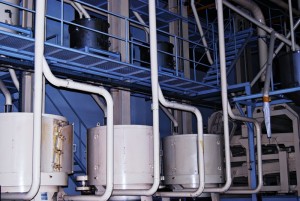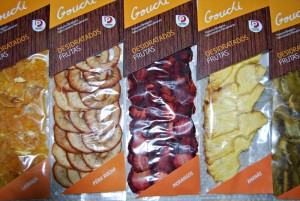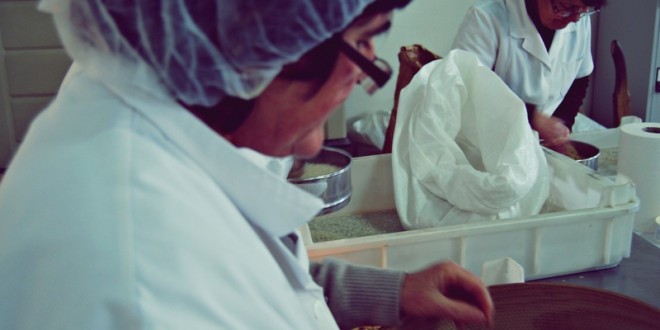Herdade de Carvalhoso
There are ever more cases of business success for firms linked to the organic food sector but Herdade de Carvalhoso clearly represents a unique case within the Portuguese context.

Located in Ciborro, just outside Montemor-O-Novo, in the Alentejo, a region historically considered the grain basket of Portugal, Herdade de Carvalhoso, founded in the 1970s, started out dedicated only to the production of cereals, primarily maize and rice. In the 1980s, particularly following Portuguese membership of the then European Economic Community, funds became available for investing in agriculture. This fact, associated with a high level of cereal production and the prospects for the construction of two dams within the geographic region drove the need for a maize and rice treatment unit. Thus, Herdade de Carvalhoso installed the facilities still remaining today and performing tasks including the drying, de-husking and storage of cereals, ranging from wheat, barley, oats and maize through to rice, with its whitening also taking place onsite.
While the transformation of cereals does not represent a particularly well developed area of activity in Portugal, this still does not reflect the most interesting characteristic of this Alentejan company. Since 2004, Herdade de Carvalhoso has worked exclusively organically, which requires not only the cultivation of foodstuffs in accordance with the canons of organic agriculture but also its production and transformation. Furthermore, this is the only company on the Iberian Peninsula to operate an exclusively organic maize drying unit, a factor of ever greater value in this age of genetically modified organisms and industrialised agriculture, as its director, Engineer Gabriela Graça explained. Annually, the estate produces in the region of seven thousand tons of cereals.
Here, tradition always keeps one eye very much faced on the future
A single visit to the installations proves enough to understand that this is a traditional company in the very best sense of the word. This means that instead of investing in a machine to sift the cereals and other podded vegetables, the company opted to contract three local females in order to humanise the process and simultaneously provide some social and economic support to their host region. In the same way, the flours are ground by stone with all processes carried out with the maximum degree of mechanical energy efficiency.
In addition to the production unit, the estate also retails its products in various stores nationwide. Hence, traditionally Portuguese products such as brown rice and rice with herbs such as pennyroyal, rosemary and parsley are thus easily available. The estate also produces a varied range of beans including black-eyed beans and pinto beans through to chickpeas alongside more exotic varieties such as azuki beans. There is also truly impressive range of flours in their product catalogue ranging from the most common such as wheat and barley through to rice and chickpea based flours. For fans of sweet and desserts, this is the chance to try some sugar and chocolate crunch, a sweet snack made up of flakes of cereals covered with black chocolate and, once again, all entirely organic.
One of the greatest challenges faced by Herdade de Carvalhoso has been finding national organic cereal producers.
In parallel, Herdade de Carvalhoso markets Gouchi, a gourmet product brand spanning varieties of flavoured or steamed rice as well as dried vegetables, in particular chard, carrots, peppers and tomatoes. There is also a range of dried fruits including apples, rocha pears and strawberries.
Here, tradition always keeps one eye very much faced on the future and hence there is space on the shelves for foodstuffs that may prove eccentric to the regular consumer but that still does not stop them setting off appetites as is the case with brown rice and azuki beans or the dried edible flowers.

This company does not only feed humans given that part of its production goes into animal feeds that join the list of the company’s many organic products. With the exception of the bird foods, with their ingredients including a percentage of fish meal sourced through sustainable fishing methods, all other animal feed products are of vegetal origins. The catalogue contains feeds for bovines, caprids, pigs and rabbits as well as selling fodder cereals in bulk.
One of the greatest challenges faced by Herdade de Carvalhoso has been finding national organic cereal producers given that the overwhelming majority of the market focuses on industrialised agriculture. Thus, on no rare occasion, the firm needs to make recourse to imported cereals. However, in order to invert this trend, the estate is seeking to establish incentive policies for organic Portuguese cultivation and reaching out to centres of production to provide assistance to farmers with a guaranteed market for all the supplier’s crop representing another strong incentive.
As projects for the future, Herdade de Carvalhoso plans to intensively leverage what the company charmingly names its laboratory that is in fact no more than a kitchen where different types of products get tested prior to their market launches. This was where the company came up with the varieties of rice that are no available to the general public. In the medium term, another objective involves installing solar panels as another step in the direction of self-sustainability as well as embracing still more profoundly the organic philosophy on life.
Paço Dos Aragões, 7050-616 Ciborro, Montemor-o-Novo, Portugal
TEL 266 847 169
comercial@herdadedecarvalhoso.pt
www.herdadedecarvalhoso.pt
Ride Lisboa-Montemor-o-Novo and back: 24,10 kg CO 2 .
 Eco123 Revista da Economia e Ecologia
Eco123 Revista da Economia e Ecologia



